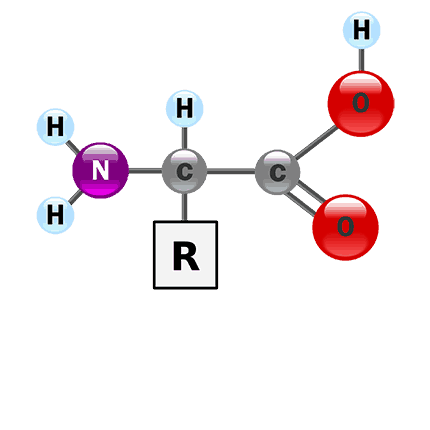General information about whey protein
Whey protein is one of the most effective proteins for athletes. It is mainly known for its high biological value, its high content of essential amino acids and its fast absorption capacity. The biological value provides information about the efficiency with which the nutritional proteins can be converted into the body’s own proteins. Whey protein has a biological value of 104 and thus the highest of all individual proteins.
Whey protein is particularly suitable for muscle building and maintenance, but can also be used for dieting and muscle definition. The complete amino acid profile, the high biological value and the high protein content of 100g make Whey Protein the most popular protein shake for athletes. Whey protein is extracted directly from the milk using special filtration processes, dried and concentrated. The quality and purity depend heavily on the manufacturing process and the quality of the milk. Bio Whey Protein from AlpenPower is made from organic pasture milk from cows kept in an appropriate manner using cross-flow micro- and ultrafiltration. Thus, we can offer a high quality, 100% organic and natural whey protein.
| food | biological value |
|---|---|
| whey protein | 104-110 |
| egg | 100 |
| tuna | 92 |
| cow’s milk | 88 |
| soy protein | 84-86 |
| poultry | 80 |
| casein | 77 |
Biological value of food
The advantages at a glance
✓ Whey protein is best absorbed by the body
✓ Can be easily integrated into the daily routine
✓ Strengthens the potential muscle gain during training
✓ Actively prevents the breakdown of muscle mass
✓ Increases the burning of fat and promotes metabolism
✓ Positive effect on the body’s defenses
✓ contains all essential amino acids for muscle growth
Whey protein for muscle growth
Proteins, carbohydrates and fats are the most important macronutrients in the diet. Protein, or protein, the body can not save, such as carbohydrates and fat. That’s why he depends on a regular intake. Muscles consist of 20% protein and about 80% water. To build and maintain muscle, the body needs proteins. The sole supply of protein but brings no muscle, the foundation is laid by an intensive strength training. This training stimulus can be implemented by the body but only in muscle, if sufficient protein is present. Protein is the building material for the muscles. Therefore, the daily protein intake should be about 2 g per kilogram of body weight with regular training.
Proteins consist for the most part of molecules composed of essential and nonessential amino acids. The essential amino acids are not produced by the body itself but absorbed through the diet. The nonessential amino acids, on the other hand, are synthesized in the body. In total, there are 22 amino acids, of which 8 are so-called essential amino acids. These include, for example, the so-called BCAAs leucine, isoleucine and valine. The whey protein is characterized by a particularly high proportion of these essential amino acids. In addition to the high percentage of BCAAs, Whey Protein also contains a high proportion of glutamine and L-arginine. This optimal amino acid spectrum makes Whey Protein particularly suitable for promoting muscle building processes.
Whey Protein is particularly suitable as a post-workout shake
For muscle growth, it is above all the nutrient supply immediately after training that is essential. In a period of about 60 minutes after the workout, there is a so-called anabolic (muscle-building) window, in which the body absorbs nutrients supplied and converts them for repair processes of the muscles.
Whey protein is absorbed quickly by the body and thus promotes muscle-building processes. This ensures a quick and precise supply of nutrients to the muscles.
Whey protein in endurance sports
Even in endurance sports, the additional protein intake may be useful. The metabolism is boosted and thus supports the fat burning as soon as the carbohydrate stores are empty. Basically, the glycogen stores in most people are empty after 1.5 hours. Thereafter, the fat metabolism is used as an energy source. However, this fat metabolism must be trained efficiently, otherwise the body gets the energy from the muscle protein and builds muscle in the worst case. If you take a whey protein shake as an endurance athlete before training, the metabolic functions are well supported and the muscle proteins are spared. After training, Whey Protein can support and directly fuel the growth of new musculature.
Whey protein for muscle definition (diet)
If you want to reduce body fat, a protein-rich diet is important. This ensures that the built-up muscle mass is retained and only the unwanted body fat is burned. The elemental goal of maximum muscle maintenance while reducing body fat can be supported with Whey Protein as a high quality source of protein.







